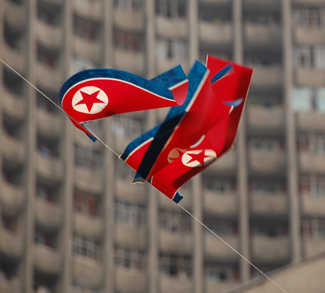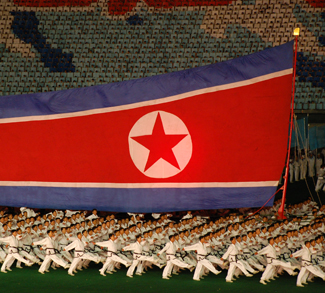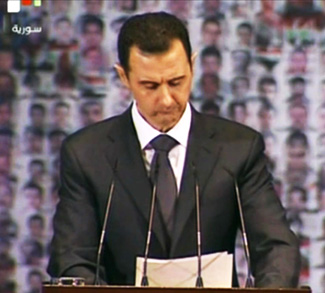Just three years after the enigmatic Kim Jong-un exulted in his third nuclear detonation in February 2013, the regime was successful in exploding what it claimed to be a hydrogen bomb.
The nearly unanimous global condemnation that followed was enough to lead to an historic round of sanctions issued by the UN that even managed to gain China’s support. Though the U.S. has managed to tighten the noose around North Korea’s leadership, this achievement also appears to be in contradiction with the need for both immediate and long-term regional stability.
As a primer to the difficult-to-manage security architecture of the Korean Peninsula and surrounding area, John Mearsheimer noted in the past several years that we cannot continue to fool ourselves about the nuclear capabilities of North Korea. There is little doubt that the country is now a de facto nuclear weapons power – a verity that the U.S. and its close allies hasten to deny for fear that states could similarly pursue these weapons.
The statement, and one that has been supported by numerous experts and scholars on North Korea, nuclear weapons, and regional security in Asia, leads to an often evaded or dismissed notion that the U.S., South Korea, China, and Russia may have to accept living with a nuclear North Korea as part of their security calculations.
“They [North Korea] have the ability, they have the weapons, they have the ability to miniaturize those weapons, and they have the ability to put them on a rocket that can reach the homelands [U.S.],” said Admiral William Gortney, commander of the North American Aerospace Defense Command (NORAD) and US Northern Command (USNORTHCOM). NORAD is a bi-state (US and Canada) organization tasked with air and maritime warning, control, and defense. US NORTHCOM is a regional combatant command responsible for defending the continental US (including Alaska), Canada, and Mexico.
Attempts to halt North Korea matter only to the extent that North Korea actually cares.
“The most likely next vehicle that North Korea will use is their large liquid-fueled space-launch vehicle called Unha [“Galaxy” – an expendable carrier rocket], which today launches a satellite, but can be modified to carry a nuclear warhead,” explains Richard Fisher of the International Assessment and Strategy Center. The development plan therefore looks like this in simple terms: (1) develop a nuclear device, (2) develop a nuclear delivery vehicle, (3) reach global targets. As Fisher notes, that vehicle “can reach targets all over the United States.”
However, the success-rate of nuclear delivery for North Korea is greatly reduced due to lack of flight-testing. David Albright, Center for Science and International Security asks whether North Korea would be “willing to commit suicide for a 10% chance of success […] most nations would say absolutely not.” But we have to keep in mind that North Korea is neither most states, nor are there states like North Korea in the world.
US sanctions unveiled over five years ago were expected to dissuade North Korea from pursuing its nuclear dreams, but that never happened. It seemed like a good idea at the time although it led to several tests and an advanced stage of development. What we are now witnessing is ineffectual repetition.
With a dual-aim of removing Kim Jong-un and hitting the stop button on his nuclear weapons program, the U.S. is unlikely to reach its desired aims through adoption of UN Security Council (UNSC) Resolution 2270 on North Korea or further sanctions. Now that North Korea has crossed the nuclear threshold, there is little incentive to move back to the negotiation table with the U.S. and other representatives of the international community. As was the case half a decade ago, the North Korean dictator is little deterred.
Today, North Korea’s powerful military remains exactly that, only now it possesses a handful of nuclear warheads and is still led by an irrational dictator who stands to gain from the latest sanctions imposed on the state. It is rather inaccurate to see the US as occupying a victorious position after the adoption of the resolution since North Korea has gone on to indicate its readiness to use its military power whenever necessary. If by some stroke of fortune North Korea were to ever revert back to the path of diplomacy, little should be expected after years of rewarding North Korea for its failure to comply with a bundle of UNSC resolutions ordering the Kim Jong-un regime to halt its course.
Attempts to halt North Korea matter only to the extent that North Korea actually cares. The point of the sanctions, including those imposed years ago, were supposed to prevent North Korea from reaching the point that it already has. Now the legal instruments that the UN arms itself with are only able to inform the world that further transgression would be just that, merely a violation of what North Korea cares little about violating.
If North Korea were to go so far as to actually use its nuclear weapons, the UN would be prepared only to point to the fact that their use would be illegal under international law. Kim Jong-un, however, may find a bit of wiggle-room in this context.
The International Court of Justice (ICJ) faltered when it came to the question of a state actually using nuclear weapons in an extraordinary case of self-defense. As Dan Joyner, writing in the field of arms control law expressed, “[o]f course, extreme circumstances of self-defense would only go, if anywhere, to the jus ad bellum question of whether a use of force against another state would be lawful. It does not go to the jus in bello question of whether the use of nuclear weapons during an armed conflict would be lawful under international humanitarian law, and its restrictive principles of distinction and proportionality particularly.”
Despite the major obstacles that exist in many different scenarios involving nuclear use by North Korea, if it were to be attacked its justificatory barriers remains tremendously daunting but not insurmountable.
The most striking event of the past several years is the adoption of new UN resolutions. This signifies the recommencement of a pattern that led to the one point nobody wanted to reach. It is also illustrative of the weakness of the U.S. to stand for the principles in which it believes. There are now fewer options on the table to compel Kim Jong-un to back down – even taking into account his maniac and irrational character. What the U.S. and its allies have not learned from the recent past is that the repetition of a model for disaster seen decades ago in Iraq with many years of sanctions having destroyed Iraqi society to the point of eventually creating a dangerous backdrop for the emergence of extremists and leaving the regime of Saddam Hussein in an even more powerful position.
On the effects of sanctions, numerous economic studies, including Abel Escribà-Folch and Joseph Wright’s “Dealing with Tyranny” published in 2010 in International Security Quarterly, have shown that if there is a capacity of an opposition to increase then there is an opportunity for the repressive power of the ruling dictator to diminish, leading to regime destabilization. But when there is no opposition to benefit, sanctions are more likely to strengthen the ruling regime. Now the U.S. and its partners have to confront the balancing act of restricting the Kim Jong-un regime’s nuclear capacity but keeping North Korea from drifting toward outright regime collapse.
Georgetown University Professor Daniel Byman and Assistant Professor Jennifer Lind of Dartmouth College identify important aspects of the “authoritarian toolbox in North Korea.” They propose the Kim family depends on three tools: restrictive social policies; the manipulations of information and ideas; heavy use of force for purposes of suppression. The UN’s new round of sanctions are likely to strengthen those repressive tools, reinforce the aggressive propensity of Kim Jong-un, and narrow his options, perhaps even compelling him to resort to what the world fears most.
The opinions, beliefs, and viewpoints expressed by the authors are theirs alone and don’t reflect any official position of Geopoliticalmonitor.com.



